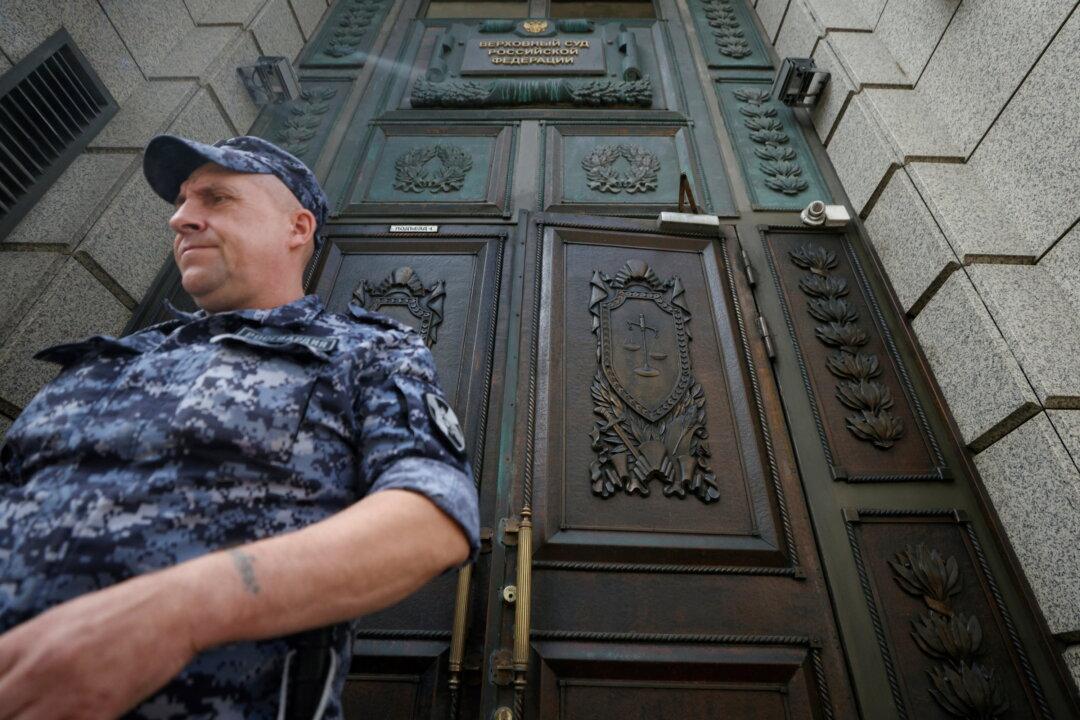MOSCOW—Russia’s top court on Tuesday designated Ukraine’s Azov Regiment as a terrorist group, a Reuters correspondent in the courtroom said, paving the way for captured soldiers to be tried under stringent anti-terror laws and be jailed for up to 20 years.
The Azov Regiment, which has far-right and ultra-nationalist roots, has been one of the most prominent Ukrainian military formations fighting against Russia in eastern Ukraine. Having begun as a paramilitary unit fighting against pro-Russian rebels in 2014, it was later integrated into Ukraine’s national guard.





